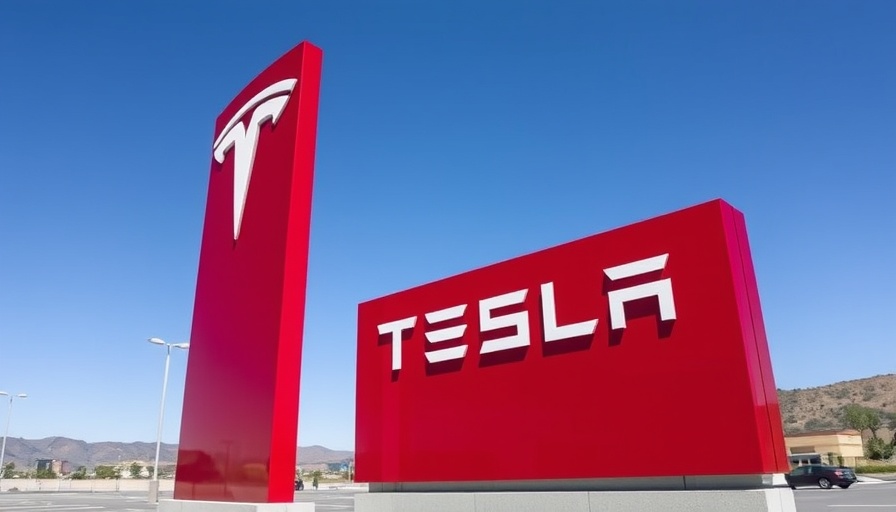
Tesla Faces Declining Sales Across Europe as EV Demand Grows
In a troubling trend for Tesla, electric vehicle (EV) sales in Europe fell sharply in April 2025, despite an overall surge in EV popularity. Reports indicate that Tesla’s new car sales in Spain plummeted by 36% year-over-year, amounting to just 571 vehicles, while the overall sales of electric vehicles in Spain increased by 28%. This pattern is echoed across Europe, where Tesla sales fell by 37.2% during the first four months of the year. Notably, Sweden saw an 81% drop in Tesla sales, marking a significant downturn for the company that once led the global electric vehicle market.
Impact of Political Climate on Tesla’s Performance
The timing of Tesla's decline coincides with CEO Elon Musk’s increasing engagement in right-wing politics, particularly his association with former President Donald Trump, known for his contentious tariff policies. These political ties may be alienating some European consumers who, in addition to embracing new political narratives, are gravitating towards alternative brands like BYD, a rising Chinese electric vehicle manufacturer that is capturing more market share. This ideological shift among the electorate could be a crucial factor influencing consumer choices, as buyers increasingly seek brands that align with their values.
Competition Grows as Market Dynamics Shift
As competition intensifies, Tesla faces mounting pressure from a flurry of new entrants to the EV market, particularly from Asia. Not only are local European manufacturers enhancing their electric offerings, but Chinese electric vehicle brands are also becoming more appealing. Regional competitors are rapidly innovating and often providing comprehensive deals that meet the needs of various consumers, attracting those who may have once exclusively favored Tesla. Along with that, the logistical and infrastructural challenges to expanding Tesla’s market reach in new terrains like Saudi Arabia and India continue to complicate the company's growth strategy.
What Does This Mean for Future EV Sales?
The future of Tesla in an increasingly competitive landscape hinges on several factors, including consumer sentiment towards its leadership and political affiliations, the availability of local alternatives, and Tesla’s ability to innovate continuously and stay ahead of emerging competition. To regain its footing, Tesla may need to reconsider its strategies in European markets, where the brand's once-strong allegiance is faltering. Offering discounts, as recently reported for the Model Y, might be a temporary fix but could signal deeper troubles regarding demand elasticity among customers.
Broader Electric Vehicle Market Trends
The contrast between Tesla's declining sales and the growth of electric vehicle sales overall indicates a significant shift in consumer preferences. The public’s growing eco-awareness and desire for sustainable transport options highlight a burgeoning market potential that remains largely untapped. As other automakers roll out a diverse array of electric vehicles with various features and price points, the market dynamic is changing. Buyers now enjoy a slew of options, and with rising charging stations, the technology underpinning electric vehicles has matured, paving the way for broader acceptance.
Concluding Thoughts on Tesla and Consumer Choices
As electric vehicle sales continue to swell across Europe, the slump in Tesla’s performance serves as a stark reminder that brands must remain agile and responsive to consumer sentiments. Tesla’s struggle illuminates important lessons about staying attuned to market shifts, innovation dynamics, and consumer psychology. Ultimately, how the company navigates this transformative period will determine whether it can reclaim its position as an electric vehicle leader in the future. Understanding these trends will not only aid industry watchers but can also inform consumer choices as they consider which brand to support in the evolving landscape of electric mobility.
 Add Row
Add Row  Add
Add 



Write A Comment